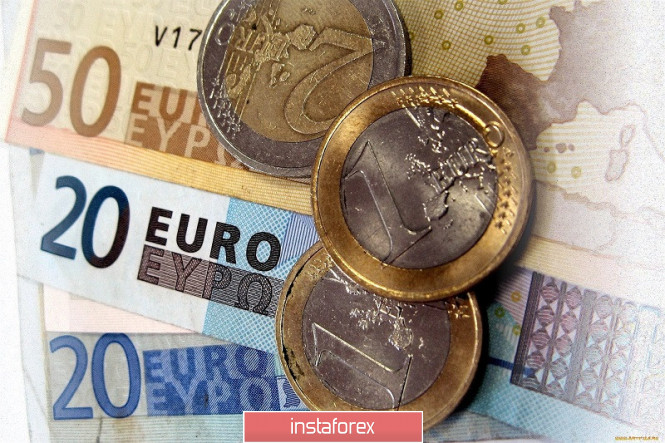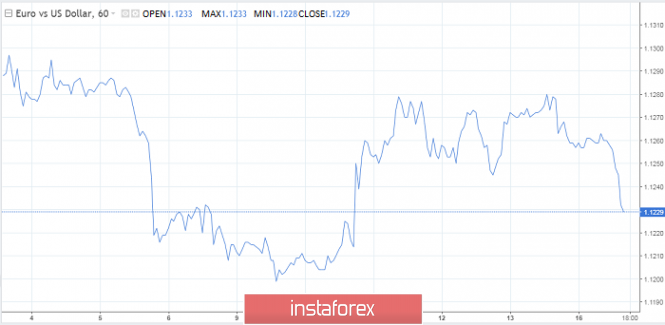
Factors such as trade wars, the weakness of the eurozone, the soft monetary policy of the ECB are not in favor of the euro. Another escalation of the US-China conflict, which may well occur, will strike at European exports and increase the risks of recession in the region. The owner of the White House argues that the slowdown of China's economy to its lowest level for 27 years is nothing but an effective US tariff policy. Washington is likely to increase pressure on Beijing if the latter does not accept the conditions proposed by the Americans. Recall that Chinese authorities have repeatedly emphasized that they will not participate in this kind of dialogue.
The risks of a downturn in the euro bloc are also discussed in the OECD. The government does not stimulate the economy enough, representatives of a reputable organization believe. The contribution of state support to GDP growth is insignificant 0.3 pp, while the forecasts of an increase in the economy are significantly adjusted downward. Activities, in the first place, are expected from Germany, which is working with a budget surplus. German debt rates on 15-year securities are negative, which leads to additional investor spending, and these funds could go into the real economy. As an example, here you can take France with its fiscal stimulus of 17 billion. Thus, the country's economy for the first time in 6 years will grow faster than the average for the eurozone.
Accelerate the process of restoring the eurozone economy by 0.75 percentage points stimulating fiscal policy is quite capable in the next two years, according to the OECD. However, experts warn that the ECB can not cope with the approaching recession on their own. Based on ING research, the likelihood of a recession will increase with a slowdown in the industry. But there is one positive thing that allows us to expect that the negative growth rates of the economy will be avoided - employment in the manufacturing sector continues to expand.
In principle, the euro is not averse to grow, but the burden of problems prevents. On top of everything else, a trade conflict between the European Union and the USis brewing. In such conditions, it's hard for euro bulls to dream about $1..15, and even more so about $1.17. However, when there is a currency war, it is almost impossible to predict the result. According to representatives of PIMCO, the White House will definitely intervene in the life of foreign exchange markets, and this will happen very soon. The effectiveness of direct dollar sales against the background of a constant stream of statements about a weak national currency exchange rate and the Fed's readiness to lower rates can be very high.

Now traders refrain from any active actions, preferring to wait for the release of data on retail sales and industrial production from the United States. Information in the releases can be a signal of how much the Fed will loosen monetary policy at a meeting in July. After Jerome Powell's speeches before Congress, the likelihood of a 50 percent reduction in the rate increased from 2% to 29%. The statistics, deprived of optimism, will raise the chances even higher and help EUR/USD buyers to push quotes to the bottom of the 13th figure.
The material has been provided by InstaForex Company - www.instaforex.com